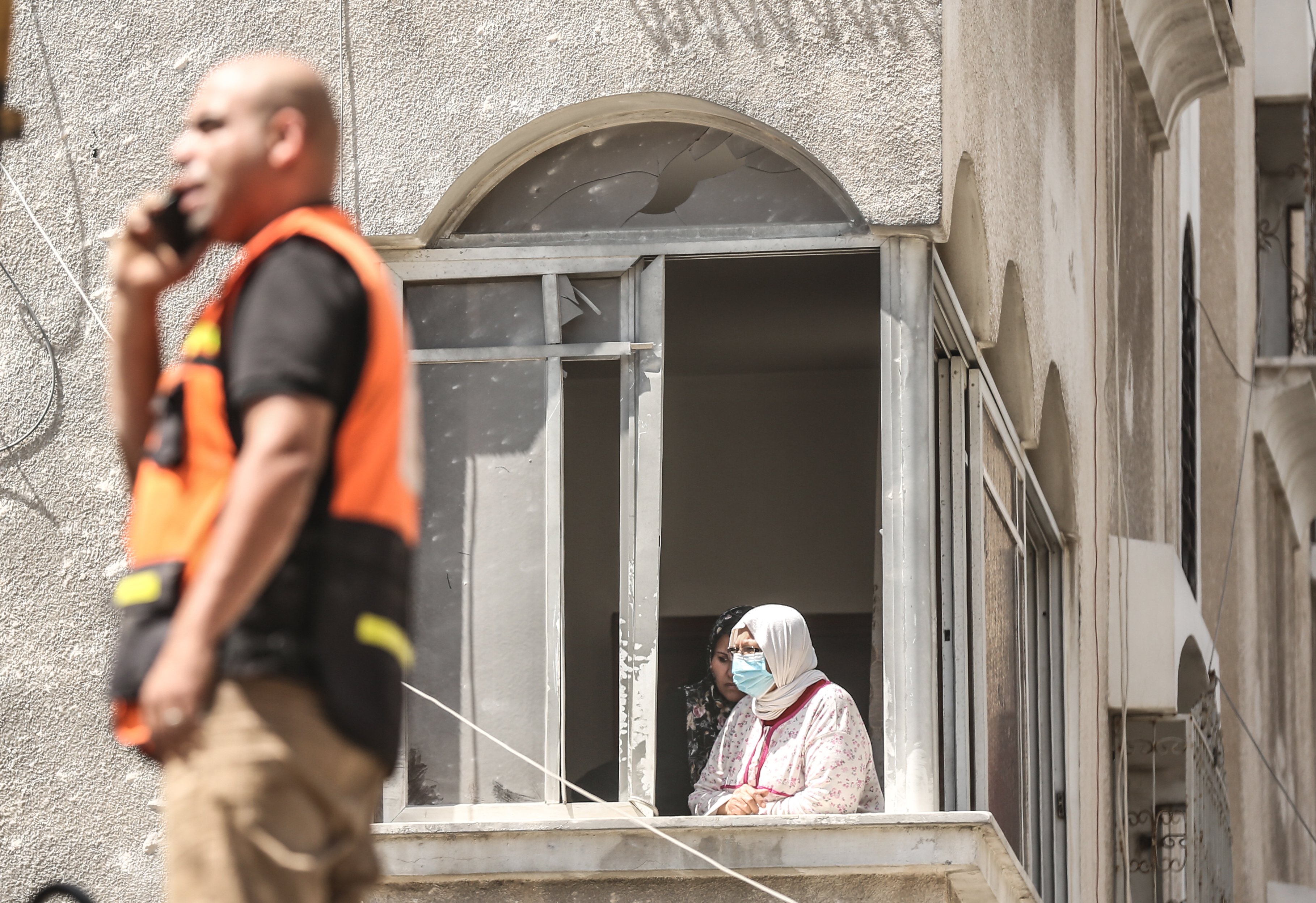Oxfam is urging President Biden to halt arms sale, and push for immediate ceasefire instead.
Bombing in Gaza is reducing entire apartment blocks to rubble, destroying roads that are critical arteries to vital economic centers, and damaging clinics and schools. Nearly 450,000 people in Gaza need humanitarian assistance, but shelling and bombardment is cutting them off from humanitarian groups.
Oxfam has worked to rebuild after three cycles of destruction, death, and grief in Gaza over the past 10 years. Right now, Oxfam staff and our network of partners are trying to resume emergency assistance and livelihood programs, but the destruction and threat to life everywhere make it impossible. We are prepared to provide food, clean water, sanitation, child protection support, and cash for basic needs, but the bombing is making it too dangerous for anyone to leave their homes, including humanitarian aid workers.
Water and sanitation affected by conflict
An assessment by Oxfam’s water and sanitation team found that many water wells and pumping stations have been damaged by Israeli bombardment. These facilities are the only way for people living in Gaza to get clean water and any disruption to them creates immediate distress. The Palestinian Water Authority estimates that 40 percent of Gaza water supplies have been affected.
People are struggling to secure any cash or income to support their basic needs, including for buying food, water, and medicines. People who have lost their homes have been forced into temporary shelters and, for now, humanitarian agencies have not been able to set up systems to properly support them with food, water, and sanitation facilities.

“We must remember that Gaza is in the midst of coping with the COVID pandemic too,” says Oxfam Country Director for the Occupied Palestinian Territory and Israel, Shane Stevenson. “People need access to water and medicines and hospitals to halt the virus spread and help nurse patients to recovery. Adding conflict on top of COVID feels like a recipe for disaster." During the pandemic, Oxfam has been providing hygiene kits, meals, and beds to Gaza’s two main isolation centers.
As much as 200,000 hectares of agricultural land have been bombed or is otherwise inaccessible to farmers now because of the danger of attack. Transport and movement around Gaza are not only unsafe but now made highly difficult because of the bomb damage to roads and debris from destroyed buildings. Some arterial routes are blocked entirely. Even if a ceasefire were declared today, it could take weeks to start meaningful repairs.
Biden administration doing far too little to end violence
A much-needed ceasefire to the conflict is still not on the horizon. In the US, the Biden administration has blocked a statement at the United Nations Security Council to call for a ceasefire and condemn the parties’ role in stoking the violence. On May 5, it notified Congress of its intent to sell to Israel approximately $735 million in precision-guided munitions – the same weapons currently being used in its airstrikes in Gaza. Oxfam warns that proceeding with this sale would send the wrong message to the warring parties at a time when a ceasefire is needed immediately.
“Make no mistake: if the US goes ahead with this arms sale to Israel, these weapons will undoubtedly be used in Gaza – either in this round of bloodshed or the next one,” said Noah Gottschalk, Oxfam America’s Global Policy Lead. “This sale will be seen as a ringing endorsement of ongoing military activity at a time when all US efforts should be focused on bringing an end to the violence.
“The Biden administration has promised to be guided by a commitment to human rights and the rules-based international order, but this promise is meaningful only when applied universally – especially as concerns close allies. President Biden has an opportunity to make good on his commitment. He must reconsider this planned arms sale, call on the parties to agree on a ceasefire, and allow the international community to speak with one voice at the Security Council to advance peace, security, and human rights.
“The situation is dreadful but – until security improves enough to open up assessments and aid supply lines – things will quickly deteriorate much further,” Stevenson said. “Families are telling us that they are too scared to leave their homes for food and some have already run out of drinking water. Women and children have been maimed and killed. The scale of suffering is immense and yet we cannot respond properly. These aerial assaults have taken lives and any sense of safety, but they are also taking away people’s options to cope too – to buy food and supplies, and to go about their lives. The people of Gaza are psychologically exhausted and fearful and exposed. They need peace now in order to pick up the broken pieces of their lives.”

